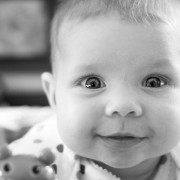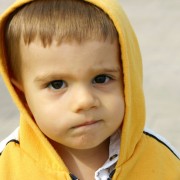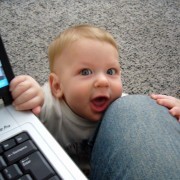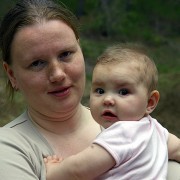What Can I Do When my Child Hurts Another?
I was asked recently, what do you do if your 20 month old hurts a baby for no apparent reason?
Let’s look at what’s happening developmentally around this age…
Language – By about 2 years of age, they can put two words together, have a vocabulary of around 50 words, and speak clearly half of the time.
Intellectually – a two year old uses ‘trial and error’ to attempt things; knows how to utilise objects eg how to use a chair to climb higher; and likes to pull things apart and try to put them together.
Motor Skills – they can climb on things, kick a ball forward and carry a large object while walking.
Social-Emotional development – This is critical to know about, to understand why a child sometimes responds poorly. They have learnt to say ‘no’ to show independence, make choices, and show a wide variety of emotions eg jealousy, sympathy, fear and anger, and that can change suddenly.
So, back to the situation…
Your child could be tired or hungry. He could be frustrated that the adults were noticing the baby and not him. He could be feeling isolated from the attention. He may have been telling the adults something and they didn’t respond.
All children want attention. They will initially learn that when they do certain things, they get attention such as smiling, cheering, High 5’s etc. As parents, when they’ve done something multiple times, we gradually withdraw the acknowledgement, and save it for something new. The child then begins to realise that he also gets attention when he spills the milk, or pulls the cats’ tail. It might not be pleasant attention, but it’s still attention.
Look at the toddler, and in a stern, yet calm voice say: “No, you can not hurt the baby.” Then turn away from him, and put a lot of attention on the baby – cuddling and nurturing the baby. You should not talk to the baby about the ‘bad’ boy, but rather saying – ‘it’s not nice to be hurt’ or ‘you are crying because you are hurt’. In this way, you are making statements of fact, rather than directing ‘bad boy’ messages. The reality is the boy isn’t ‘bad’, but rather he made a ‘bad’ choice about how to behave. It’s a bit like when you ‘choose’ to drive 20kph over the speed limit and get a ticket for it. It doesn’t make you ‘bad’ – you just made a poor decision.
The message you need to convey to the toddler is that behaviour choices such as being gentle with the baby leads to positive attention. Choosing to be rough gets a stern response, and not much attention.
Note that this is only for a very short time – the 20 month old toddler still needs your love and affection, as they are probably stressed by all the negativity around their action.
Deal with it sternly, promptly, and after checking baby is okay, then move on.
In the next little while, I’d suggest a lot of role modelling. As you hold the baby say aloud: “I’m being gentle with the baby. When I’m gentle the baby smiles” etc. Maybe ask the toddler to show you how he can be gentle with the baby, or with his doll or teddy.
It’s important to tell children what you want them to do, rather than what you don’t want them to do. At 20 months they can’t always work that out!
Like most things in life we need to practise skills before we become proficient… toddlers need lots of opportunity to learn how to do this and, they learn it faster when they have positive encouragement from us.
Happy Parenting!
— Image by Donnie Ray Jones via Flickr









